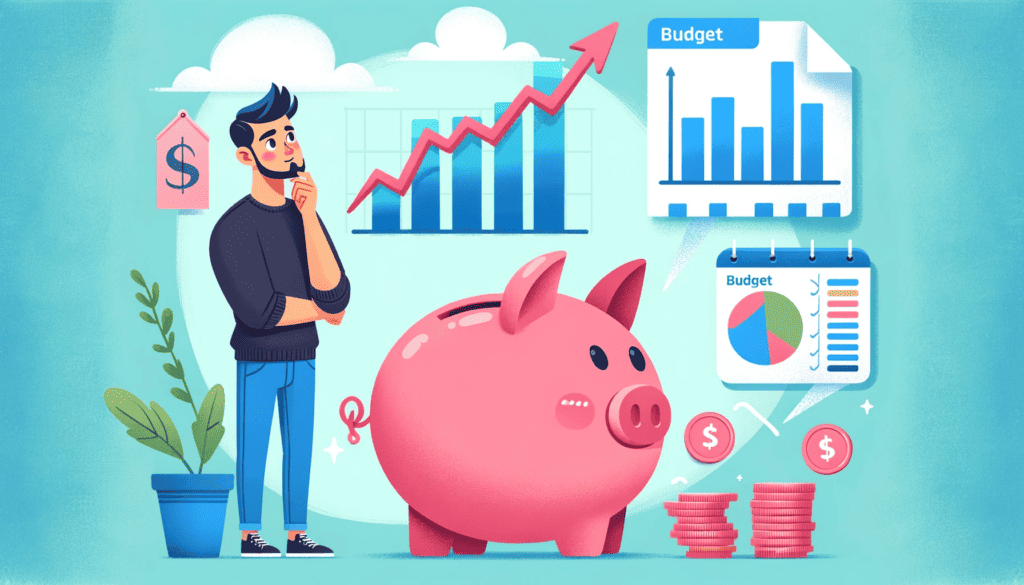
The Lure of Instant Gratification
The Temptation to Spend
When payday arrives, the immediate temptation is to spend on everything you’ve been waiting for. Whether it’s dining out, new gadgets, or fashionable clothing, the urge to spend your paycheck as soon as it arrives can be overwhelming.
Short-term Happiness, Long-term Regrets
While spending brings short-term happiness, it often leads to long-term financial regrets. The initial joy of purchasing fades, leaving you with less savings and potentially more debt.
Financial Stability: A Distant Dream
Savings: The Foundation of Financial Security
Building savings is essential for long-term financial stability. Without savings, you are unprepared for emergencies, unable to plan for the future, and more likely to incur debt.
Living Paycheck to Paycheck: A Risky Cycle
Spending your entire paycheck forces you to live paycheck to paycheck, a cycle that’s hard to break. This lifestyle leaves you vulnerable to unexpected expenses and financial crises.
The Debt Trap
Easy Spending Leads to Hard Debts
Frequent spending can lead to using credit cards or loans to sustain your lifestyle, trapping you in a cycle of debt that’s difficult to escape.
The High Cost of Debt
Debt comes with interest, making everything you buy more expensive in the long run. This can lead to a situation where a significant portion of your income goes towards paying off debts, leaving little for savings or investments.
Missed Opportunities for Wealth Building
The Power of Investing
Investing a portion of your paycheck can lead to significant wealth accumulation over time. By spending your entire paycheck, you miss out on these investment opportunities.
Compound Interest: The Eighth Wonder of the World
Einstein famously referred to compound interest as the eighth wonder of the world. By not saving and investing, you lose out on the benefits of compound interest, significantly impacting your financial future.
Impact on Mental and Physical Health
Financial Stress: A Silent Killer
Constant financial stress can lead to mental health issues like anxiety and depression. It also affects physical health, as stress is linked to various health problems.
The Never-ending Cycle of Stress
Living paycheck to paycheck creates a never-ending cycle of stress, as you constantly worry about covering your expenses and dealing with unexpected financial emergencies.
Relationships and Money
Financial Strain on Relationships
Money problems are one of the leading causes of stress in relationships. Spending all your paycheck can strain your relationships, especially if it leads to financial insecurity.
The Importance of Financial Harmony
Maintaining financial harmony is crucial for healthy relationships. Overspending can create conflicts and undermine trust between partners.
The Illusion of Rich Living
Keeping up with the Joneses
Trying to keep up with others’ lifestyles can lead you to spend beyond your means. This creates an illusion of a rich lifestyle while your financial health deteriorates.
The Reality Behind the Facade
Many people who appear wealthy are actually in debt due to overspending. True wealth is not about outward appearances but financial stability and freedom.
Lost Opportunities for Life Experiences
The Cost of Overspending
Spending your paycheck on material things means less money for meaningful life experiences like travel, education, or pursuing hobbies.
Rich in Things, Poor in Experiences
While possessions can bring temporary joy, experiences enrich your life in the long run. Overspending on things can deprive you of these valuable experiences.
Planning for the Future
The Importance of Retirement Planning
Not saving a portion of your paycheck means you are not contributing to your retirement fund, which can lead to financial difficulties in your later years.
The Early Bird Gets the Worm
Starting to save for retirement early can significantly affect the quality of your life post-retirement. By spending your entire paycheck, you miss out on this crucial planning phase.
Breaking the Cycle
Budgeting: Your First Step
Creating and sticking to a budget is the first step in breaking the cycle of spending your entire paycheck. It helps you understand where your money is going and find areas to cut back.
Setting Financial Goals
Setting short and long-term financial goals gives you a roadmap to financial stability and helps curb impulsive spending.
Things to Consider
Evaluating Your Spending Habits
Take time to evaluate your spending habits. Understand the difference between wants and needs, and prioritize spending on essentials.
Seeking Professional Advice
If you’re struggling to manage your finances, consider seeking advice from a financial planner. They can help you develop strategies to save more and spend wisely.
Embracing a Minimalist Lifestyle
Consider adopting a minimalist lifestyle, focusing on what’s essential and finding happiness in non-material things. This can lead to more savings and less stress.
Learning About Personal Finance
Educate yourself about personal finance. Understanding how money works can empower you to make better financial decisions and avoid the pitfalls of spending your entire paycheck.
Conclusion
Spending your entire paycheck is a habit that can lead to financial instability, stress, and missed opportunities. By understanding the risks and adopting smarter financial habits, you can achieve a more secure and fulfilling life.






Leave a Reply